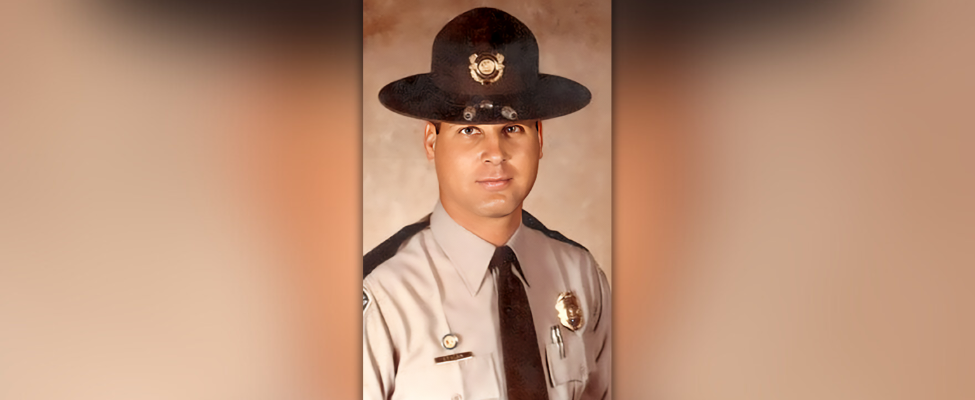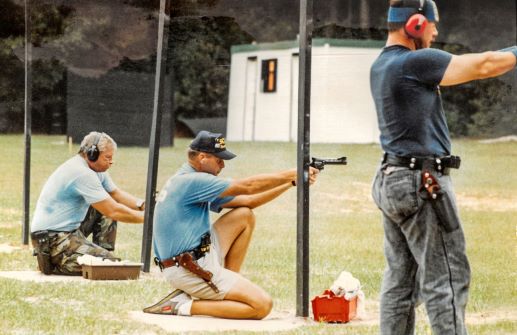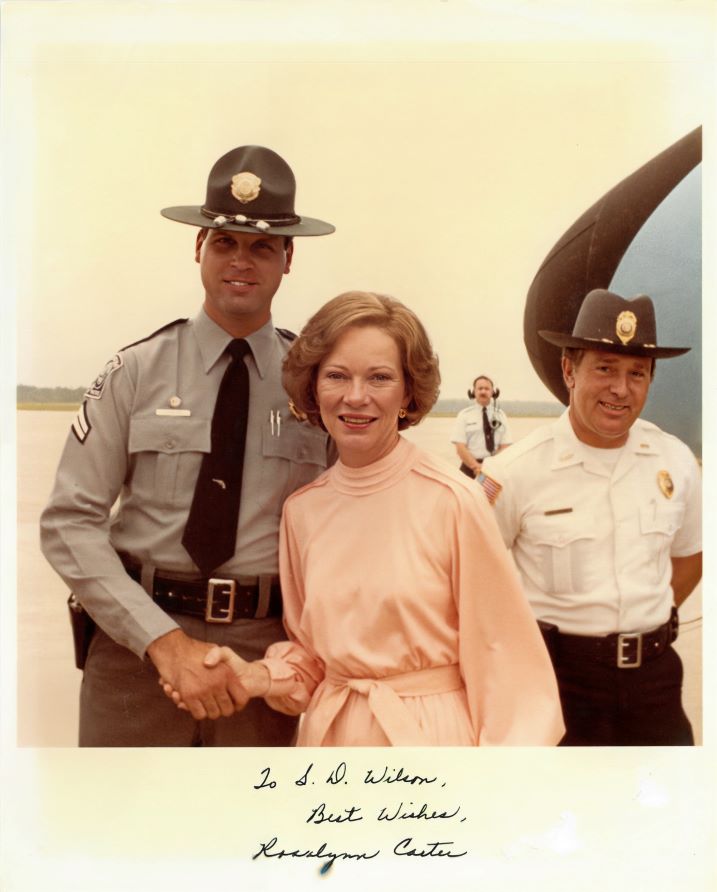
Major Stephen “Snake” Wilson needed no introduction during his time with the South Carolina Highway Patrol. Described as a dry-humored outdoorsman with a humble demeanor but brutal honesty, the quiet leader left a lasting impression during his nearly half-century career in law enforcement — which was honored Wednesday with his induction into the South Carolina Law Enforcement Officers Hall of Fame for Meritorious Service.
“A lot of people didn’t know how to take Snake, or didn’t understand him that well,” said SCHP Captain Darek McMurry, who worked with Wilson on the Pistol Team. “He was dry but very comical, and one of the most brilliant men I’ve ever been around in my life.”
Born in 1950 in Chester County, Wilson’s father, who worked in a cotton mill, made sure his children grew up to understand the value of a hard day’s work.
After the family moved to Anderson, Wilson graduated from high school and decided to attend Clemson University, majoring in zoology and commuting from his family’s home to save money. He chose to enlist in the military voluntarily as the conflict in Vietnam heated up. However, colorblindness and a hearing deficit revealed in his physical prevented him from serving.
While living in Anderson, Wilson met a South Carolina Highway Patrolman and was impressed by the sharp uniform. He decided to join the patrol and graduated in December 1972 with Class 36.
First assigned to Richland County, he climbed the ranks, becoming a Sergeant in 1982, and was assigned to the Criminal Justice Academy, where he helped prepare recruits for their career in law enforcement by teaching firearms and driving.
“He had that country accent, so even though he operated at a higher level, he did not present that way,” recalled Hall of Fame Administrator Jim McClary. “He was always a helpful coach type who was trying to get the best out of people and bring them along. He was there to build you up, not tear you down.”
While Wilson was a supportive and nurturing mentor, at 6-foot-4 he was “skinny as a rail,” retired State Transport Police Lieutenant Don Tinsley, who worked with Wilson at the Training Unit and on the Pistol Team, said with a chuckle. He was also known for his quiet, contemplative presence and brutal honesty.
“Be prepared, because if you asked his opinion, he was going to tell you even if it hurt your feelings,” Russell Wilson said of his brother.
In 1979, Wilson joined the SCHP Pistol Team, bringing his experience in hunting and shooting to a competitive arena while also taking new techniques back to the training program for recruits.
“Everything he did and helped with would nurture a new trooper,” Tinsley said. “And hopefully, when they’re using that weapon, they are using it in self-defense to try and save somebody’s life.”
As a pistol instructor, Wilson and Tinsley modernized firearms training by integrating computer systems and creating a running man target, both of which are still used today. They also established an annual in-service program requiring troopers to maintain their weapons to proper standards.
“He was always sharp as a tack, in his uniform and in the things he did,” Tinsley recalled. “But he was as dry as a dry frying pan in the summertime. He always tried to stay ahead and take the proper courses and training that would help troopers in the field.”
Wilson was the first person in South Carolina to be distinguished in six different weapons by the National Rifle Association’s Distinguished Marksmanship Program, and placed in the Governor’s Twenty from 1980 to 2003, which recognizes the best marksmanship among all law enforcement officers in South Carolina. With his final promotion to Major in 1999, he oversaw administrative operations, helping lay groundwork for the Highway Patrol’s Motor Unit, K-9 Unit and Multidisciplinary Accident Investigation Team, and the Aviation Unit.
Despite all of his accomplishments over the years, Wilson’s passion was educating and inspiring younger generations. McMurry recalled meeting Wilson as a teenager when his Boy Scout troop took a trip to the shooting range, where Wilson was demonstrating marksmanship for the scouts.
“He took a playing card, turned it sideways, and cut it in half with a shot from a .22-caliber handgun at 25 yards,” McMurry recalled. “I was totally impressed as a kid and said, ‘I want to do that one day.’”
On trips to pistol competitions, Wilson could be counted on not just for a lesson in marksmanship. A history buff, he loved stopping at historic markers and sites, and was always expected to drop some trivia.
“You know what Union County is known for?” McMurry recalled him asking. “The very first hot air balloon took off and landed in Union County.”
McMurry then chuckled. “The funny thing is, he’s got me doing it now — stopping and reading historical markers,” he said.
Even after retirement in December 2001, Wilson returned to the Highway Patrol and put in seven more years of service in the Training Unit, and then at the Criminal Justice Academy. Wilson retired from the Academy in July 2018, capping off more than 45 years of dedicated service.
“He was a one-mold man,” McMurry said. “They only made one Snake Wilson, and he was a mountain of a man.”
In his later years, mobility issues limited Wilson’s shooting ability, but he never lost his enjoyment for it. Right up until his death in July 2025, he maintained his love for his family, his regard for others, and his sense of humility. Russell Wilson delivered the eulogy at his brother’s funeral, and was floored by the number of troopers and former colonels in attendance.
This week’s Hall of Fame induction ceremony isn’t the only honor bestowed on “Snake” posthumously. This weekend, for the first time, the South Carolina Police Combat League is renaming its annual tournament in his memory.
“Snake would be gracious for all of it,” Russell Wilson said. “He wouldn’t show a whole lot of emotion. But he would be appreciative.”


